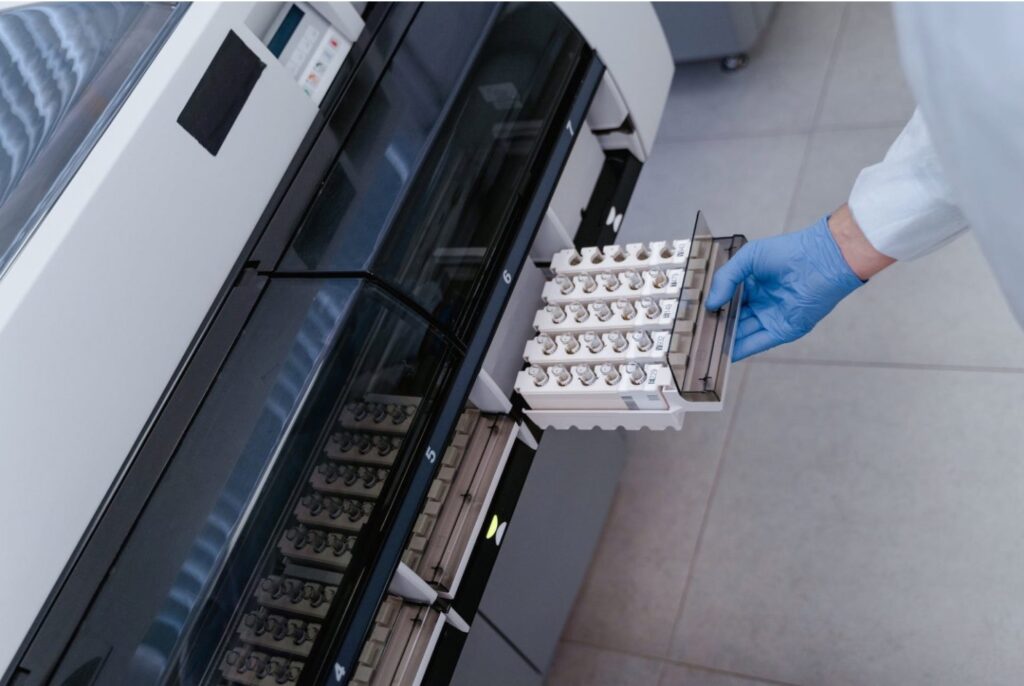Pulmonary
Nasal Polypsis Clinical Studies

What is Nasal Polypsis?
Noncancerous growths called nasal polyps form in the sinus or nasal channel lining. These smooth, painless masses can appear alone or in groups, and they range in size. Researchers look at the underlying causes, factors that contribute to the condition’s progression, and efficient treatment choices for managing nasal polypsis in nasal polypsis clinical studies.
Although the precise cause of nasal polyps isn’t always known, allergies, asthma, chronic inflammation, and recurrent sinus infections are frequently linked to them. Symptoms of nasal polyps include runny nose, postnasal drip, nasal congestion, persistent stuffiness, hyposmia (reduced sense of smell), and recurrent sinus infections. When nasal polyps get more severe, they can block nasal passages, which can cause breathing problems and sleep issues.
Nasal polypsis clinical studies is essential to the advancement of knowledge in medicine and available treatments. With the goal of reducing recurrence rates, improving overall quality of life, and relieving symptoms, these studies assess novel drugs, treatments, and surgical procedures for individuals with nasal polyps.
Nasal Polypsis Symptoms
Depending on the size and location of the nasal polyps within the sinuses or nasal passageways, there might be a range of symptoms. Persistent nasal congestion is a common symptom that can make it difficult to breathe through your nose, especially while you’re sleeping or lying down. In addition, some may have postnasal drip, in which mucus falls down the throat and irritates it, or runny nose with thin, watery discharge (rhinorrhea).
The goals of Nasal polypsis clinical studies are to minimize the recurrence of nasal polyps and to develop efficient symptom treatment techniques. A diminished sense of taste or smell (hyposmia), headaches, snoring, and recurrent sinus infections (sinusitis) are possible additional symptoms. For those who have nasal polyps, these symptoms can have a major negative influence on their quality of life and day-to-day activities.
Nasal Polypsis Treatment Options
Reducing the size of nasal polyps, easing symptoms, and preventing recurrence are the goals of treatment methods. Nasal polypsis clinical studies Researchers investigate a range of therapeutic options, including medicine, nasal sprays, and individualized surgical procedures.
In order to lessen inflammation and shrink nasal polyps, doctors frequently prescribe medications like corticosteroid nasal sprays. By addressing the underlying inflammation, these sprays target the nasal passages directly with medication. For the near term, nasal polyps may be treated with oral corticosteroids to minimize their size and alleviate associated symptoms. Although one of many treatments, our nasal polypsis clinical studies look to expand additional treatment options.
Surgery may be an option for patients with severe or chronic nasal polyps. Under general anesthesia, endoscopic sinus surgery is a minimally invasive treatment used to enhance sinus flow and remove nasal polyps. To effectively manage chronic or recurrent nasal polyps, additional treatments such as biologics that target specific inflammatory pathways may be advised in some situations, according to nasal polypsis clinical studies
Patients who take part in Miami Clinical Research’s nasal polypsis clinical studies can receive cutting-edge therapies and individualized care plans from skilled medical specialists. The purpose of these research is to enhance treatment options and results for people with nasal polyps.
Explore Nasal Polypsis Clinical Studies
Would you like to look at recent nasal polypsis clinical studies? Find out how you can contribute to research aimed at improving nasal polyp management and treatment choices by clicking the link below. By taking part, you may improve medical research and even your own health.
Ready to Relieve your Nasal Polypsis?
Get in touch with our staff right away if you have any inquiries concerning nasal polyps or if you’re thinking about taking part in our nasal polypsis clinical studies. In addition to scheduling your initial consultation and offering thorough information, our committed medical staff and research coordinators can also help you navigate the study procedure. To manage your nasal polyps and enhance your quality of life, get in touch with us right now. For more health related articles, follow us on Linkedin.

